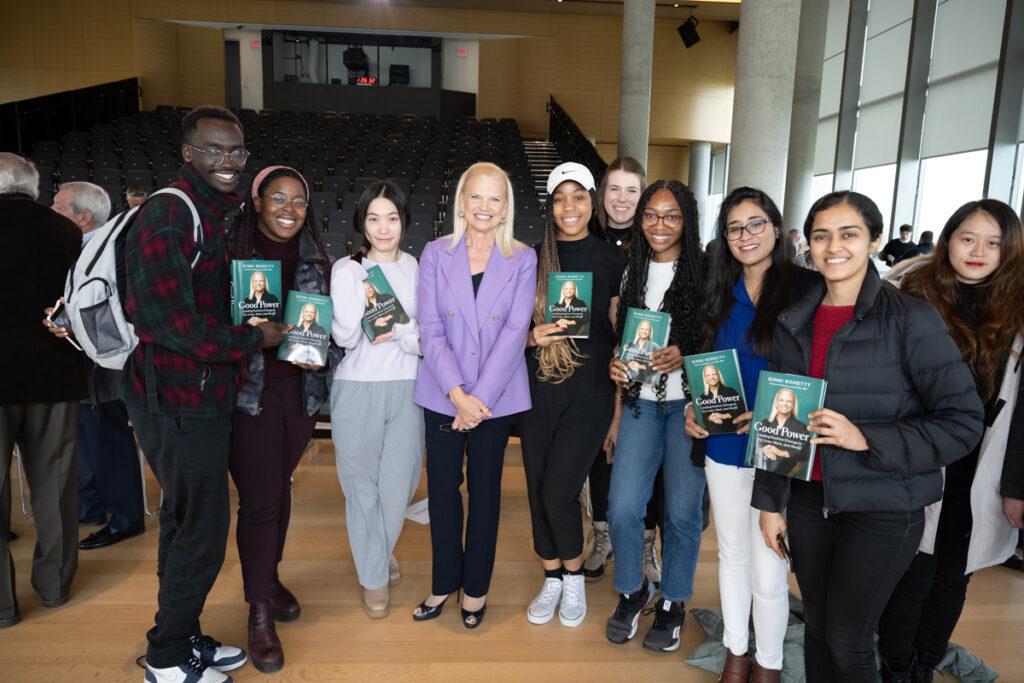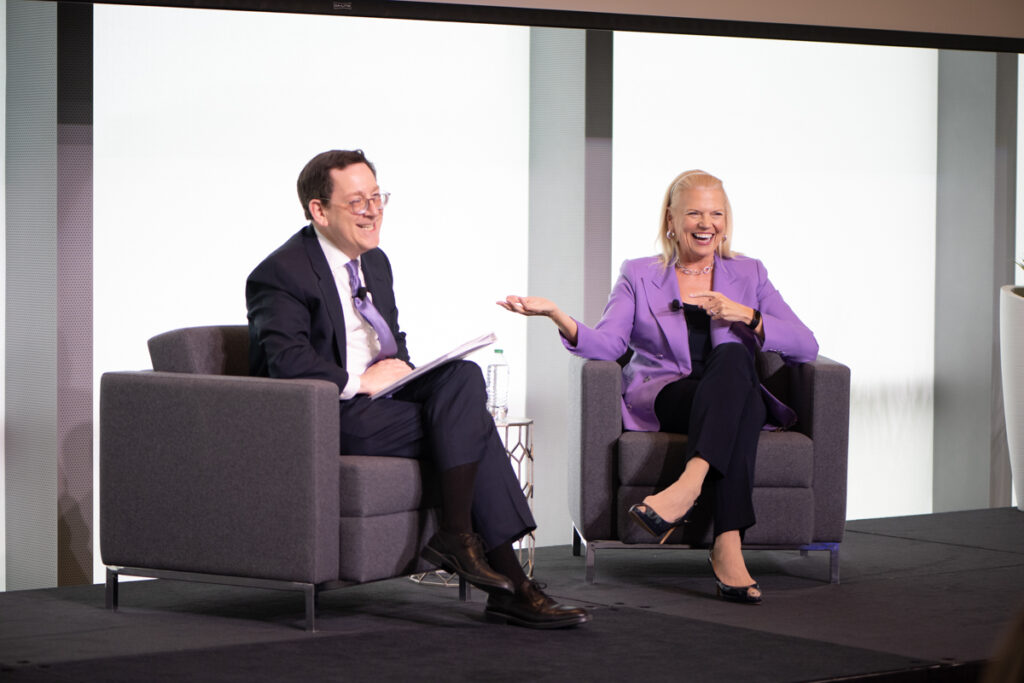Ginni Rometty, an American business leader, made history as the first female CEO of IBM. Her journey with the company began in 1981 when she joined as a systems engineer, eventually ascending to roles overseeing global sales, marketing, and strategy.
During her tenure as the general manager of IBM’s global services division, Rometty was pivotal in negotiating IBM’s acquisition of PricewaterhouseCoopers’ IT consulting business in 2002. Her adeptness in integrating the operations of these two entities earned her widespread recognition.
Upon assuming the position of president and CEO in January 2012, Rometty redirected IBM’s focus towards emerging technologies such as analytics, cloud computing, and cognitive computing systems, shaping the company’s trajectory in the digital age.
Throughout her leadership at IBM, Rometty garnered numerous accolades, including being named among Bloomberg’s 50 Most Influential People in the World, Fortune’s “50 Most Powerful Women in Business,” Time’s 20 Most Important People in Tech, and Forbes’ America’s Top 50 Women In Tech. Her innovative vision and strategic prowess have left an indelible mark on the technology industry.
On January 30, 2020, it was disclosed that Rometty would relinquish her role as CEO of IBM, with Arvind Krishna appointed as her successor. She was executive chairman until December 31, 2020, when Arvind Krishna assumed the position.
An emblem of inspiration
Ginni Rometty is an emblem of inspiration and trailblazing for countless women in STEM and business circles. As the inaugural female Chair, President, and CEO of IBM, she has become one of the most influential women globally.
Since departing from her executive position three years ago, Rometty has authored “Good Power: Leading Positive Change in Our Lives, Work, and World.” Additionally, she has taken on the role of Founder and Co-Chair of the charitable organization OneTen. In this capacity, she continues her mission initiated during her tenure at IBM, striving to facilitate access to employment and training opportunities for individuals from disadvantaged backgrounds. By doing so, she empowers individuals and provides employers with fresh reservoirs of talent, perpetuating her legacy of fostering positive societal change.
Ginni Rometty: AI focus should be on people
The rapid evolution of artificial intelligence has prompted established companies to embrace it and swiftly bet their futures on its potential. However, Ginni Rometty warns that this eagerness could carry reputational risks if not carefully considered.
Rometty emphasizes the importance of responsible stewardship in AI, highlighting the need for companies to critically evaluate the data that fuels these systems and ensure they are trained to be accurate and unbiased. She cautions that businesses risk damaging their reputation if they fail to fully comprehend the complexities and implications of AI before deploying it to employees and customers.
In an interview with CEO David Solomon for Talks at Goldman Sachs, Rometty stresses the significance of vigilance, noting that the current landscape presents not merely a technological challenge but also a matter of trust and people. She underscores the potential impact on brand integrity and emphasizes the necessity for a nuanced understanding as AI is applied to issues of significance and personal consequence.


A decade ago, Rometty initiated the SkillsFirst program at IBM, marking a significant shift in hiring practices to provide opportunities for previously overlooked individuals and create pathways for capable workers without traditional degrees. Initially termed “new-collar jobs,” these positions are now more aptly labelled as skills-first roles, emphasising abilities over formal education. In today’s landscape, these roles have taken centre stage, driven by various factors, including the escalating costs of higher education, a volatile job market prompting companies to fill vacancies swiftly, and the profound impact of the pandemic. This unprecedented context has prompted workers and executives to reevaluate their priorities and needs, underscoring the significance of skill-centric approaches in navigating the evolving employment landscape. Ginni Rometty asserts that generative AI is pivotal in skills-first hiring practices.



